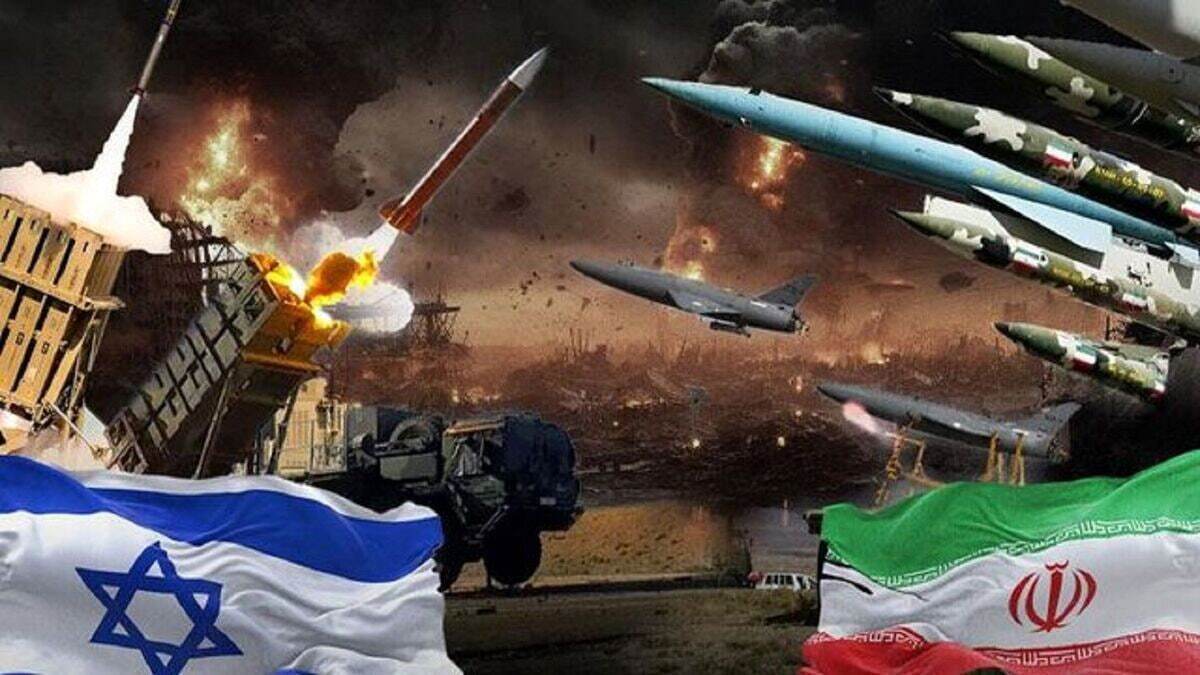Alwaght- The flames of war between Israeli regime and Iran have winded down for now while in this confrontation waves of global support to the Iranian legitimate resistance and self-defense against the Israeli and American aggression began to flow to Tehran.
One of the most striking and concrete signs of this support was the vocal backing from Arab and Muslim nations for Iran’s heavy military strikes against the Israeli regime. Beyond the widespread condemnation of Israel’s attacks on Iran in Arab public opinion, social media platforms were flooded with celebratory posts from Arab users, who drew parallels between the images of destroyed Israeli cities and the devastation in Gaza.
In addition to proving that just contrary to the US strategy the Arab world is not positive about Arab normalization with Israel, this situation motivated the Arab countries and public opinion to more than ever move towards solidarity and sense of closeness to Iran. This, for its part, destroys Iranophobia policy in action by the West for decades.
The key point of concern of the Arab countries is heightened crisis and spread of war to other parts of the region, especially the Persian Gulf, where shadow of war could expand to the American military bases and oil production and transfer facilities after the American intervention in the war in favor of Israel.
A nuclear crisis is not far off in the future as current situation unfolds. Iran, under the most stringent monitoring ever imposed on a country with peace nuclear program that is a member of the IAEA and the NPT, was negotiating with the Americans to reach an agreement, but the Trump administration, with a dishonest approach, had been for a long time planning a military attack with the Israelis.
Now, while global observers are saying that Iran’s enrichment program has not been completely destroyed by Washington and Tel Aviv attacks, Tehran, based on a resolution passed by the parliament, has announced the suspension of its cooperation with the IAEA, which paved the way for the anti-Iranian aggression with politically-motivated and unbiased reports. According to many analysts, this is the beginning of a change in the Islamic Republic’s approach from transparency and trust-building to a policy of nuclear ambiguity, an issue the Arab countries and international community will blame Trump and the Israelis for.
On the other hand, the Israeli regime's aggression could give Arab countries a reason for concern as they demand peaceful use of nuclear energy. In this regard, on Sunday, Turki Al-Faisal, a prominent and influential figure in Saudi politics whose views are also considered the unofficial positions of the Saudi government on various international issues, said in a statement that in a fairer world the US should have dropped those bombs on the Dimona nuclear facility in Israel instead of attacking Iran's nuclear facilities.
These remarks come at a time Saudi Arabia has been intensely pursuing the construction of nuclear power plants and facilities in recent years, and obtaining enrichment privileges has been one of the important terms in Saudi negotiations with the US. Now, it seems that given the unilateral aggression of the Israeli regime, Riyadh is also concerned about similar obstacles and aggressive actions by Tel Aviv in the future.
Another issue is removal of the Iran-led resistance front as a firm barrier in the face of the Israeli hegemony-seeking policies and the ambitious plans to fully occupy Palestine and expand occupation to other regional countries for implementation of the broader Nile-to-Euphrates plan which seeks partition of Arab and Muslim countries in favor of the so-called "Greater Israel."
It is also certain that if the Israeli dream about Iran's defeat comes true, this regime will not hesitate to occupy Palestinian lands from the West Bank to Gaza, and the idea of a Palestinian state will be shattered forever with the elimination of the Iran-led Axis of Resistance, and Israel will neutralize the Palestinian Authority in the next step.
However, what is now visible from the effects and results of the 12-day war in the public opinion of the Arab world is the increase in the popularity and legitimacy of the pro-resistance discourse and the consolidation of Iran's superior military power against the Israeli regime.
Because of decades of military failure of the major Arab countries in the face of the Israeli regime, for a majority of the Arabs the image of war with Israel has always been associated with the invulnerablity of Israeli infrastructure and cities, especially in Tel Aviv. And now as the myth of invincibility of Israel has already been broken by Hezbollah and Palestinian groups, the Arab world saw that 22 waves of missiles under Iran's Operation True Promise III totally destroyed the myth of the Iron Dome and Israeli immunity to military strikes.



























